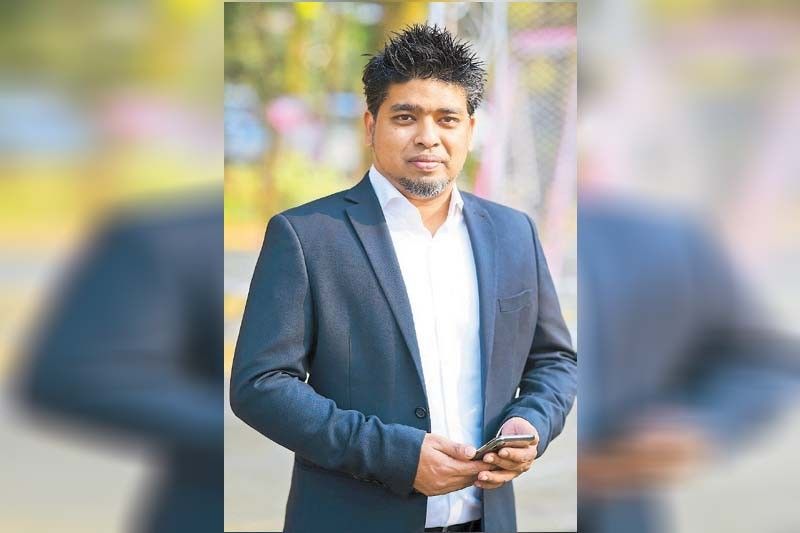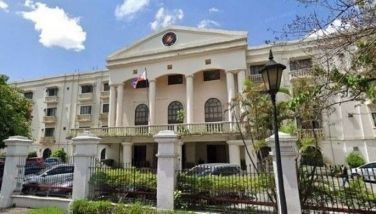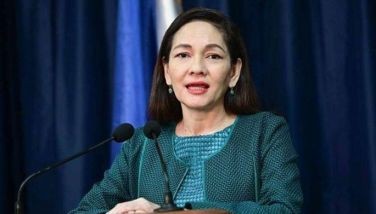RM awardee Rakshand: A room full of dreams

MANILA, Philippines — In a small, bare classroom in Bangladesh, something extraordinary was taking shape with just a piece of carpet, a whiteboard and 17 children.
“When we started, you can’t even call it the classroom,” Korvi Rakshand said of the start of his unusual school. “But the room was full of dreams, and I think that slowly took us forward.”
Rakshand, 38, is the founder of JAAGO Foundation, a non-profit organization established in April 2007 that aimed to address problems of access to quality education for underprivileged children in Bangladesh.
Jaago is the Bangla word for “wake up.”
It was a challenge that Rakshand, along with six friends, took 16 years ago, and which has since grown into one of the largest, most dynamic non-profit organizations in its field in Bangladesh.
With education as its core program, JAAGO Foundation provides free, government-recognized English-language primary and secondary education to underprivileged children through 11 traditional and online schools in 10 districts of Bangladesh.
Because of the significant impact of his endeavor, Rakshand was named as one of this year’s four recipients of the Ramon Magsaysay Award last Aug. 31.
He will receive the award under the emergent leadership category, the first Bangladeshi to receive the citation, and the 13th Bangladeshi to be given a Ramon Magsaysay Award.
Rakshand, along with Miriam Coronel-Ferrer of the Philippines, Eugenio Lemos of Timor-Leste and Ravi Kannan R. of India, will be conferred the award in a presentation ceremony to be held at the Metropolitan Theater on Nov. 11.
Rakshand’s journey into the realm of social work began with a simple desire to make a difference. He reached out to families in need, offering support and assistance. Determined to understand the intricacies of his homeland, he delved deeper.
Growing up in Dhaka, the country’s bustling capital, Rakshand ventured outside the city, where he encountered a young girl and a group of children.
The girl, who had no family, asked if she could accompany him.
Her second question resonated even more deeply: She asked if he could be her father.
These moments stirred something within Rakshand, a conviction that he couldn’t turn away from a child in need.
Motivated by this encounter, he decided to focus on children as the driving force of his mission. Education emerged as the linchpin of Rakshand’s strategy.
Recognizing the importance of the English language in a country where many sought employment abroad, he initiated English language classes for children.
Rakshand understood that language is a bridge to a better future.
As a firm believer in the adage, “If you want to go fast, go alone; if you want to go far, go together,” he was not alone.
At the onset, six friends joined him in his mission. They created a close-knit group, committed to listening to one another and identifying the most pressing issues they could address.
The initial challenge was clear: helping children overcome language barriers. Three months into their endeavor, the children presented an unexpected request: a promotion.
Rakshand’s English classes did not merely impart language skills; they ignited dreams of a school within the young learners. It was a pivotal moment.
The team decided to transition from an English class to a full-fledged school. Their commitment extended beyond Dhaka, where they realized that 90 percent of the population resided.
The school they established in a remote area was a gift “from a generous soul.” Yet, they soon discovered a pressing issue: the absence of qualified teachers.
Offering more money to potential educators didn’t sway them; their livelihoods and well-being were deeply rooted in their communities.
Undeterred by the challenge, Rakshand and his team sought innovative solutions. In an era dominated by Skype, they installed it in classrooms.
The idea of remote teaching and learning was met with skepticism, even laughter, but it worked. For students, it was akin to a celebrity appearing on their screens, making learning all the more exciting.
Unlike the limited illustrations in textbooks, they explored concepts through YouTube and Google Maps, which made complex ideas clearer.
“We can go to YouTube, share the screen (and) show them what is a volcano or maybe when I’m talking about places, I’m going to Google Maps (and) I will show them the streets,” Rakshand said.
This transformation didn’t stop inside the classroom. Instead of relying on a single benefactor, they adopted a model where many contributed small amounts, ensuring a sense of collective ownership.
The act sparked conversations and inspired children from privileged backgrounds to get involved, each pursuing their unique passions, from children’s welfare to education, women’s empowerment to youth development.
Recognizing that they couldn’t address every issue for every population, they decided to create a platform where like-minded individuals could join forces.
Thus, Volunteer for Bangladesh was born, initially comprising 14 young people in Dhaka. Calls poured in from other districts, leading to its presence in all 64 districts of Bangladesh today.
Rakshand and his team provide leadership training, capacity building and guidance on fundraising and teamwork. The local youth became the leaders, taking charge of their communities’ development.
Currently, the foundation has more than 50,000 volunteers with about 30,000 students being helped in Bangladesh in 206 classrooms with a blended learning setup, even before the pandemic started when online modes of learning became rampant.
“The program is to equip young students to be competitive, to be part of the workforce in this growing industry,” Rakshand said.
One thing that the foundation has done is to add extra content in their mainstream education that talks about different solutions happening around the world.
The foundation has also partnered with countries around the world and holding classes with Grade 2 pupils from the United States simultaneously with Grade 2 pupils from Bangladesh.
With the numerous awards and recognitions that the foundation has received, including the Ramon Magsaysay Award, Rakshand said that recognition is good in different ways.
“Sometimes we ask ourselves: ‘Are we on the right track?’ So this sort of recognition helps boost our morale, and yes we’re doing something on the right track,” he added, as he also emphasized a lot of doors have opened locally and internationally.
- Latest
- Trending































